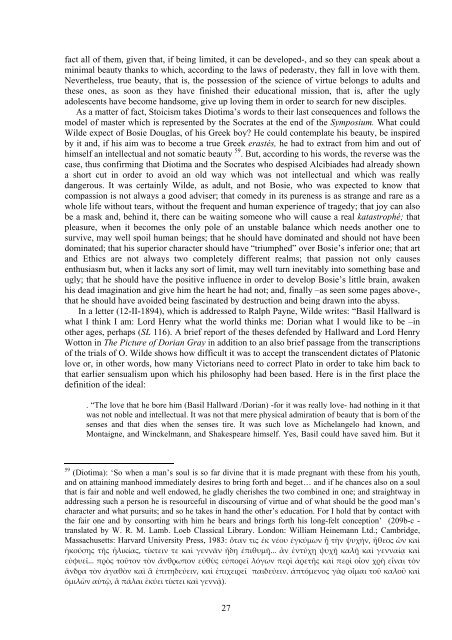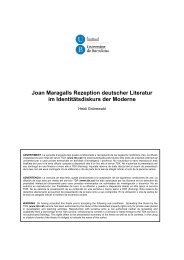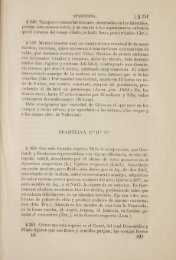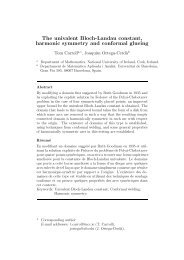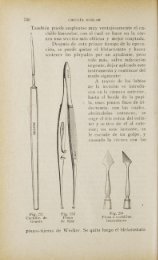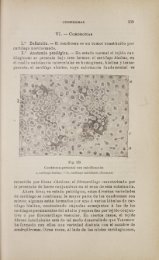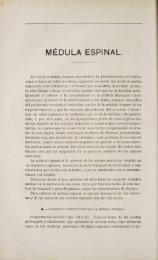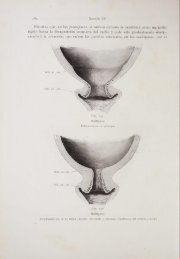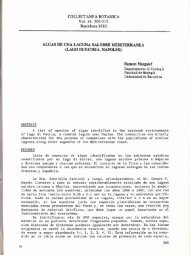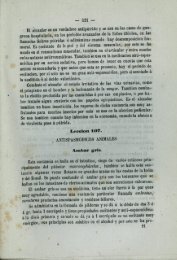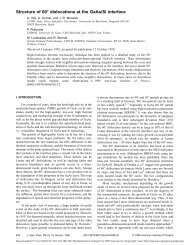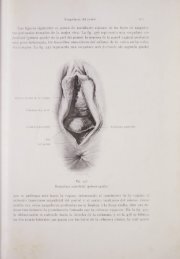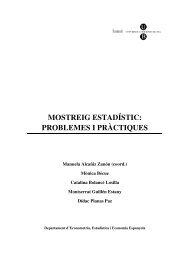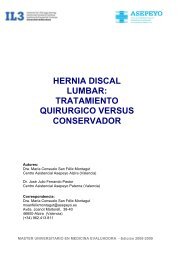Wilde Parsa ang_12080.pdf - Dipòsit Digital de la UB - Universitat ...
Wilde Parsa ang_12080.pdf - Dipòsit Digital de la UB - Universitat ...
Wilde Parsa ang_12080.pdf - Dipòsit Digital de la UB - Universitat ...
You also want an ePaper? Increase the reach of your titles
YUMPU automatically turns print PDFs into web optimized ePapers that Google loves.
fact all of them, given that, if being limited, it can be <strong>de</strong>veloped-, and so they can speak about a<br />
minimal beauty thanks to which, according to the <strong>la</strong>ws of pe<strong>de</strong>rasty, they fall in love with them.<br />
Nevertheless, true beauty, that is, the possession of the science of virtue belongs to adults and<br />
these ones, as soon as they have finished their educational mission, that is, after the ugly<br />
adolescents have become handsome, give up loving them in or<strong>de</strong>r to search for new disciples.<br />
As a matter of fact, Stoicism takes Diotima’s words to their <strong>la</strong>st consequences and follows the<br />
mo<strong>de</strong>l of master which is represented by the Socrates at the end of the Symposium. What could<br />
<strong>Wil<strong>de</strong></strong> expect of Bosie Doug<strong>la</strong>s, of his Greek boy? He could contemp<strong>la</strong>te his beauty, be inspired<br />
by it and, if his aim was to become a true Greek erastés, he had to extract from him and out of<br />
himself an intellectual and not somatic beauty 59 . But, according to his words, the reverse was the<br />
case, thus confirming that Diotima and the Socrates who <strong>de</strong>spised Alcibia<strong>de</strong>s had already shown<br />
a short cut in or<strong>de</strong>r to avoid an old way which was not intellectual and which was really<br />
d<strong>ang</strong>erous. It was certainly <strong>Wil<strong>de</strong></strong>, as adult, and not Bosie, who was expected to know that<br />
compassion is not always a good adviser; that comedy in its pureness is as str<strong>ang</strong>e and rare as a<br />
whole life without tears, without the frequent and human experience of tragedy; that joy can also<br />
be a mask and, behind it, there can be waiting someone who will cause a real katastrophé; that<br />
pleasure, when it becomes the only pole of an unstable ba<strong>la</strong>nce which needs another one to<br />
survive, may well spoil human beings; that he should have dominated and should not have been<br />
dominated; that his superior character should have “triumphed” over Bosie’s inferior one; that art<br />
and Ethics are not always two completely different realms; that passion not only causes<br />
enthusiasm but, when it <strong>la</strong>cks any sort of limit, may well turn inevitably into something base and<br />
ugly; that he should have the positive influence in or<strong>de</strong>r to <strong>de</strong>velop Bosie’s little brain, awaken<br />
his <strong>de</strong>ad imagination and give him the heart he had not; and, finally –as seen some pages above-,<br />
that he should have avoi<strong>de</strong>d being fascinated by <strong>de</strong>struction and being drawn into the abyss.<br />
In a letter (12-II-1894), which is addressed to Ralph Payne, <strong>Wil<strong>de</strong></strong> writes: “Basil Hallward is<br />
what I think I am: Lord Henry what the world thinks me: Dorian what I would like to be –in<br />
other ages, perhaps (SL 116). A brief report of the theses <strong>de</strong>fen<strong>de</strong>d by Hallward and Lord Henry<br />
Wotton in The Picture of Dorian Gray in addition to an also brief passage from the transcriptions<br />
of the trials of O. <strong>Wil<strong>de</strong></strong> shows how difficult it was to accept the transcen<strong>de</strong>nt dictates of P<strong>la</strong>tonic<br />
love or, in other words, how many Victorians need to correct P<strong>la</strong>to in or<strong>de</strong>r to take him back to<br />
that earlier sensualism upon which his philosophy had been based. Here is in the first p<strong>la</strong>ce the<br />
<strong>de</strong>finition of the i<strong>de</strong>al:<br />
. “The love that he bore him (Basil Hallward /Dorian) -for it was really love- had nothing in it that<br />
was not noble and intellectual. It was not that mere physical admiration of beauty that is born of the<br />
senses and that dies when the senses tire. It was such love as Michel<strong>ang</strong>elo had known, and<br />
Montaigne, and Winckelmann, and Shakespeare himself. Yes, Basil could have saved him. But it<br />
59 (Diotima): ‘So when a man’s soul is so far divine that it is ma<strong>de</strong> pregnant with these from his youth,<br />
and on attaining manhood immediately <strong>de</strong>sires to bring forth and beget… and if he chances also on a soul<br />
that is fair and noble and well endowed, he g<strong>la</strong>dly cherishes the two combined in one; and straightway in<br />
addressing such a person he is resourceful in discoursing of virtue and of what should be the good man’s<br />
character and what pursuits; and so he takes in hand the other’s education. For I hold that by contact with<br />
the fair one and by consorting with him he bears and brings forth his long-felt conception’ (209b-c -<br />
trans<strong>la</strong>ted by W. R. M. Lamb. Loeb C<strong>la</strong>ssical Library. London: William Heinemann Ltd.; Cambridge,<br />
Massachusetts: Harvard University Press, 1983: ὅταν τις ἐκ νέου ἐγκύμων ᾖ τὴν ψυχήν, ᾔθεος ὢν καὶ<br />
ἡκούσης τῆς ἡλικίας, τίκτειν τε καὶ γεννᾶν ἤδη ἐπιθυμῇ... ἂν ἐντύχῃ ψυχῇ καλῇ καὶ γενναίᾳ καὶ<br />
εὐφυεῖ... πρὸς τοῦτον τὸν ἄνθρωπον εὐθὺς εὐπορεῖ λόγων περὶ ἀρετῆς καὶ περὶ οἷον χρὴ εἶναι τὸν<br />
ἄνδρα τὸν ἀγαθὸν καὶ ἃ ἐπιτηδεύειν, καὶ ἐπιχειρεῖ παιδεύειν. ἁπτόμενος γὰρ οἶμαι τοῦ καλοῦ καὶ<br />
ὁμιλῶν αὐτῷ, ἃ πάλαι ἐκύει τίκτει καὶ γεννᾷ).<br />
27


